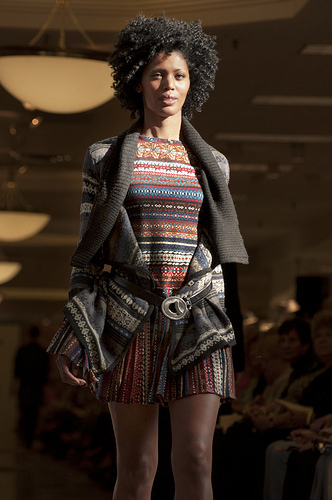Who Owns Culture?
The question of who owns culture is a big one, especially when products associated with certain cultures or nations turn out to be very popular in the marketplace. Take espresso. In a famous scene from The Sopranos, Paulie Walnuts rants inside a Starbucks-like café as he watches the cash register ring with espresso orders:
Paulie: The fuckin’ Italian people. How did we miss out on this?
Pussy: What?
Paulie: Fuckin’ espresso, cappuccino. We invented this shit and all these other cocksuckers are getting’ rich off it.
Pussy: Yeah, isn’t it amazing?
Paulie: And it’s not just the money. It’s a pride thing. All our food: pizza, calzone, buffalo mozzarell’, olive oil. These fucks had nothing. They ate pootsie before we gave them the gift of our cuisine. But this, this is the worst. This espresso shit.
Pussy: Take it easy.
Pussy had a point; it was too late. But could Italians have maintained at least some control (and profit) if the nation had trademarked the word “Italian” and sued anyone who tried to sell Italian espresso? In a nutshell, that is the question at the heart of a recent dispute between the national retailer Urban Outfitters and the Navajo Nation, a federally recognized Indian tribe. Navajo-style clothing and prints are hot on the runways these days. Urban Outfitters had followed (or led) suit, offering up such items as a Navajo flask and Navajo “hipster panty.” The Navajo, who control dozens of trademarks in the word Navajo, responded with a lawsuit in federal court.
The interesting question for Freakonomics readers is what economic purpose is served by giving a nation or a people control over the use of their name in commerce. At one level, it seems like simple justice: the Navajo should control what is called Navajo, and for many people that principle is especially compelling for a tribe that has suffered greatly in its history. But as the Sopranos episode highlights, it may not be that simple. If Italy — or Italian-Americans like us — could sue Starbucks (not to mention California Pizza Kitchen), would the world be a better place? It would certainly be a very different market if Italy, France, and China could all control how the words “Italian”, “French”, and “Chinese” were used by restaurants and cafes around the US.
The trademark law the Navajo invoke in their suit rests on the notion that marks serve as information shortcuts. Trademarks designate the source of goods so consumers can make informed choices in the marketplace. But words don’t always tell consumers who made a good, or who sponsored it. Often, words are used simply to describe a good – to tell us what it’s like, what it does, what it contains — and the ability to do this effectively can be central to a free market’s functioning: it helps put buyers and sellers together. The Navajo-Urban Outfitters dispute, if it goes to court, will turn on what the consumers who bought the Navajo panties thought they were buying. Did they think the Navajo people had made or endorsed the Navajo panty? Or did they think it was an ironic offering that used “Navajo” simply to describe the design motif or style?
There is more to the case, of course, including a federal statute governing “Indian arts and crafts.” But the core issue is a very important one in an increasingly global economy. Many people in many places are aware of the styles associated with peoples in other places, and they often want to wear those styles. The current Navajo craze, whatever its origins, reflects that desire. Firms like Urban Outfitters are generally free to sell Navajo-style clothing and even to use the word Navajo, as long as they use it to describe what the clothes look like, rather than who made them. As the Supreme Court made clear in the recent case, that is so even if some consumers are confused and mistakenly think that the Navajo people are responsible for Urban Outfitters’ Navajo panties.
The Navajo may have a strong ethical claim to some uses of the word Navajo – and by no means are we endorsing Urban Outfitters’ actions. But this being Freakonomics, ethics are not our focus. As a legal and economic matter, the Navajo are really no different than the Italians. Whatever trademark rights they possess will be trumped by market competition if it can be shown—as Urban Outfitters will surely try to do—that buyers of, say, the Navajo panty understood “Navajo” as designating a style, and not as a statement of origin.


Comments